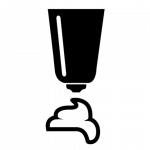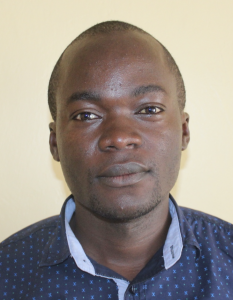The 180 residents of Mukunga Community feel like they've been left behind by the rest of the world. Without access to clean water, they find it difficult to do everyday tasks, like bathing, washing school uniforms, doing dishes, and even cooking meals. They lack enough water to properly irrigate their crops, meaning they can only grow enough to feed themselves, not to sell. And what's more, the water they are able to procure makes them sick.
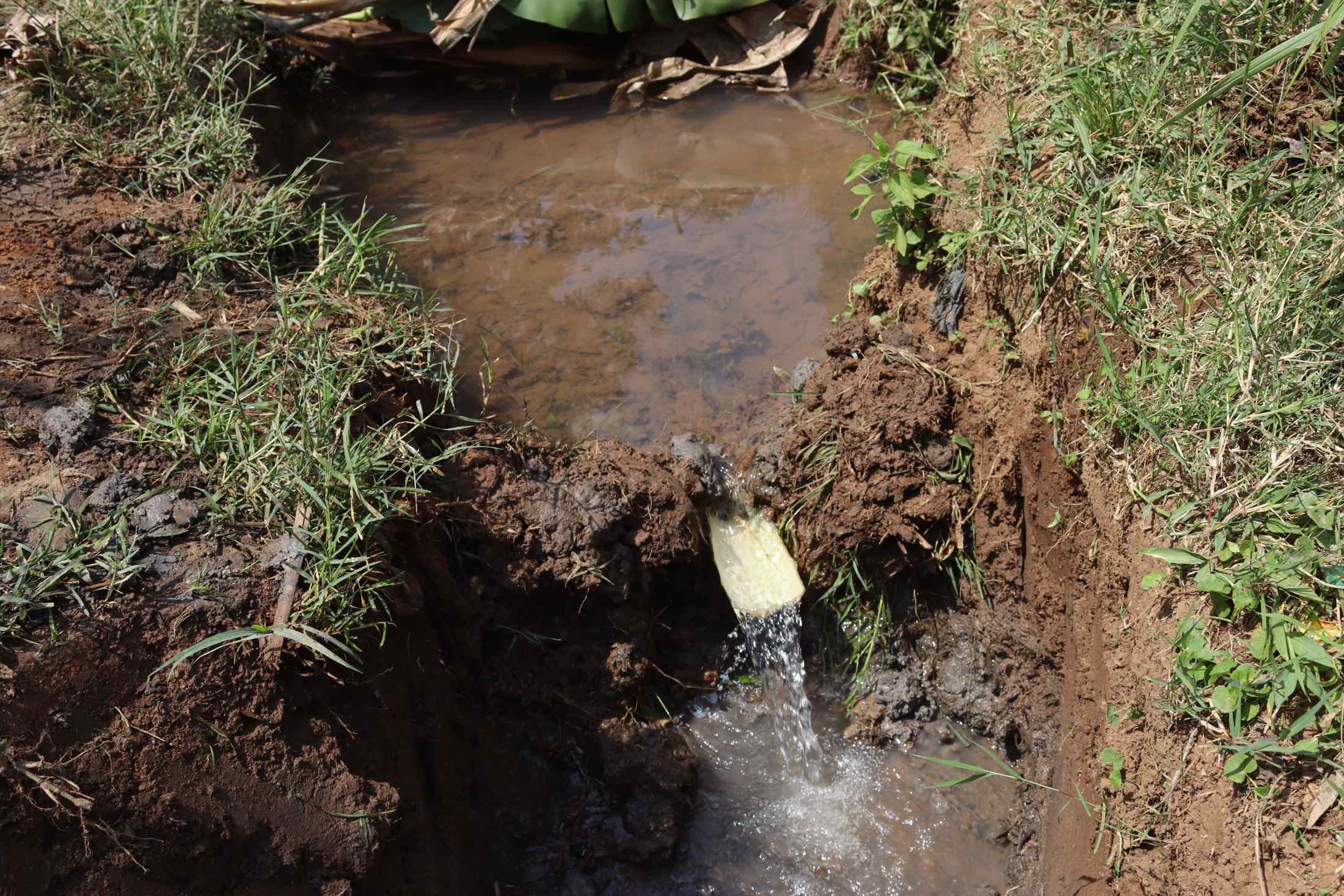
Some of the villagers need to walk at least an hour each way to fetch water. The luckiest community members, who are closest to the waterpoint, are only a 15-minute walk away. However, with three trips to collect water each day, that still amounts to at least an hour and a half wasted fetching water that gives most of them cholera, typhoid, and diarrhea.
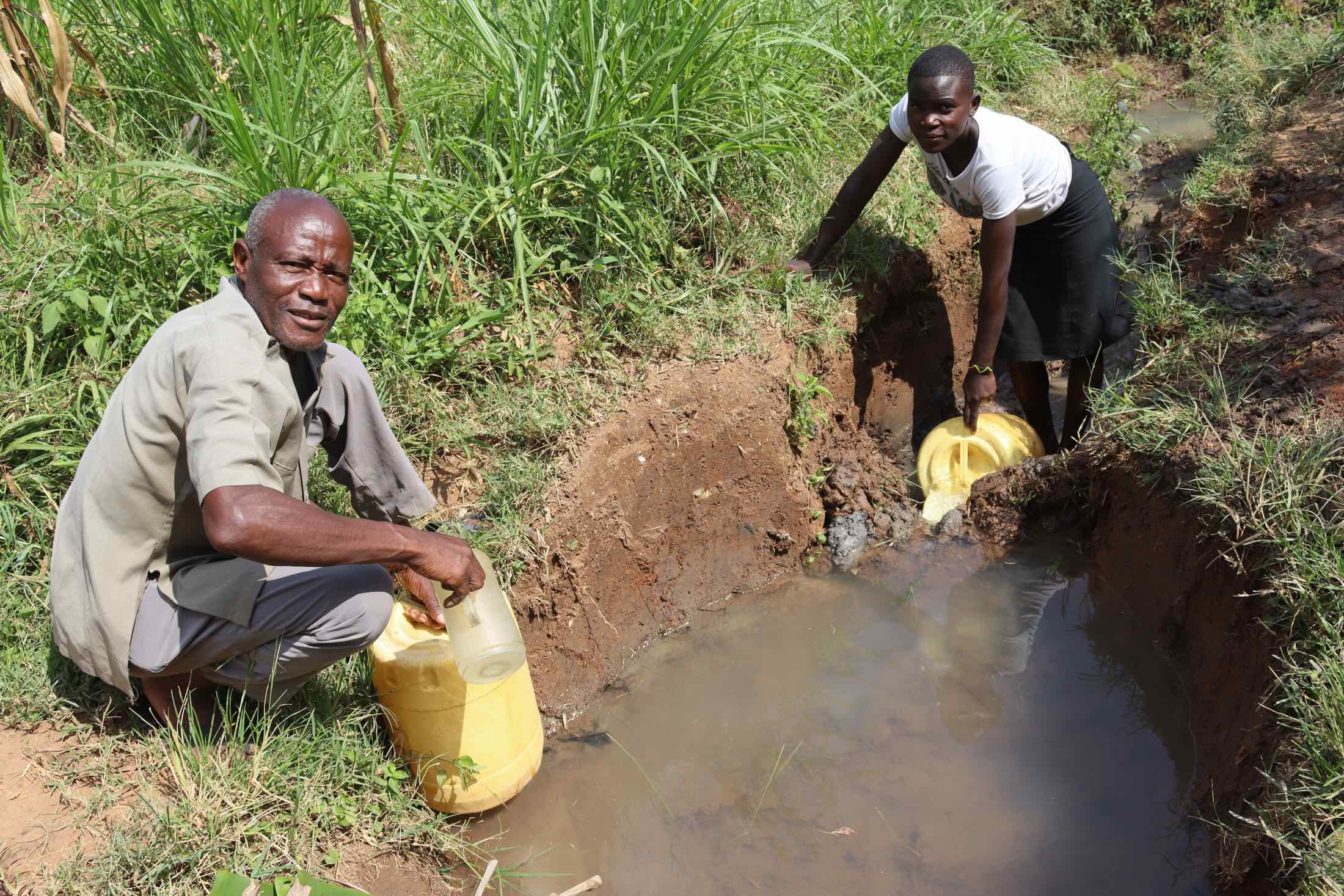
Rose M., a local student, shared how the lack of safe, reliable water has affected her life and schooling: "As a child from this community, challenges concerning water have made us lag behind, especially in matters concerning academics. [The] majority of us miss school due to unclean uniforms and diseases [that] affect [our] health."
"People spend [a lot of] time and resources in seeking medications," added Hellen Akinda, a local farmer. She is pictured below fetching water from the unprotected spring.
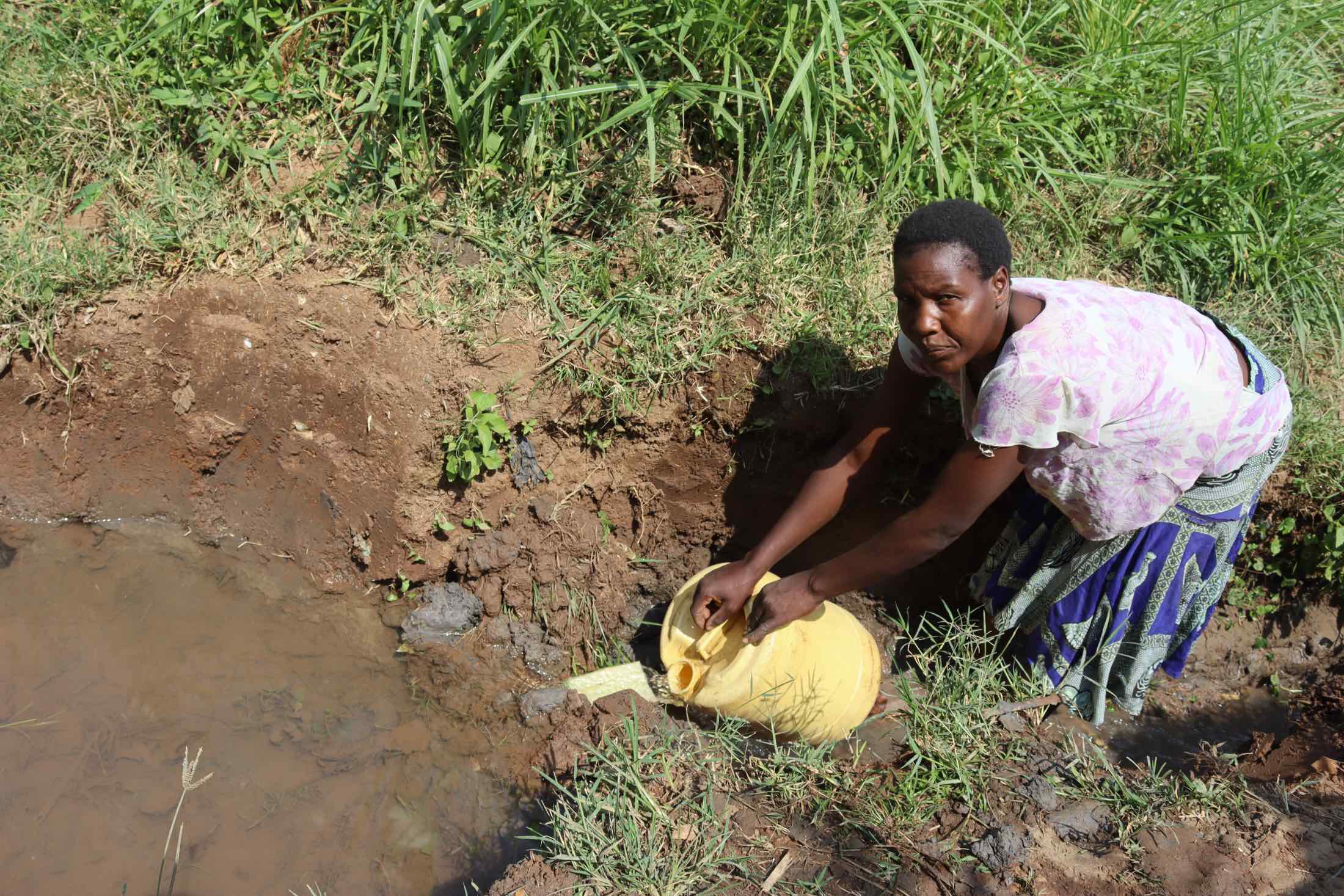
"[There is a lot of] overcrowding of people at the water source, especially [during] morning hours," Hellen continued. "Older people and expectant mothers cannot access it. The drawing point is not safe for them to fetch water."
What We Can Do:
Spring Protection
Protecting the spring will help provide access to cleaner and safer water and reduce the time people have to spend to fetch it. Construction will keep surface runoff and other contaminants out of the water. With the community’s high involvement in the process, there should be a good sense of responsibility and ownership for the new clean water source.
Fetching water is a task predominantly carried out by women and young girls. Protecting the spring and offering training and support will, therefore, help empower the female members of the community by freeing up more of their time and energy to engage and invest in income-generating activities and their education.
Training on Health, Hygiene, COVID-19, and More
To hold trainings during the pandemic, we work closely with both community leaders and the local government to approve small groups to attend training. We ask community leaders to invite a select yet representative group of people to attend training who will then act as ambassadors to the rest of the community to share what they learn. We also communicate our expectations of physical distancing and wearing masks for all who choose to attend.
The training will focus on improved hygiene, health, and sanitation habits in this community. We will also have a dedicated session on COVID-19 symptoms, transmission routes, and prevention best practices.
With the community’s input, we will identify key leverage points where they can alter their practices at the personal, household, and community levels to affect change. This training will help to ensure participants have the knowledge they need about healthy practices and their importance to make the most of their water point as soon as water is flowing.
Our team of facilitators will use a variety of methods to train community members. Some of these methods include participatory hygiene and sanitation transformation, asset-based community development, group discussions, handouts, and demonstrations at the spring.
One of the most important issues we plan to cover is the handling, storage, and treatment of water. Having a clean water source will be extremely helpful, but it is useless if water gets contaminated by the time it is consumed. We and the community strongly believe that all of these components will work together to improve living standards here, which will help to unlock the potential for these community members to live better, healthier lives.
We will then conduct a small series of follow-up trainings before transitioning to our regularly scheduled support visits throughout the year.
Training will result in the formation of a water user committee, elected by their peers, that will oversee the operations and maintenance of the spring. The committee will enforce proper behavior around the spring and delegate tasks that will help preserve the site, such as building a fence and digging proper drainage channels. The fence will keep out destructive animals and unwanted waste, and the drainage will keep the area’s mosquito population at a minimum.

 Protected Spring
Protected Spring
 Rehabilitation Project
Rehabilitation Project




